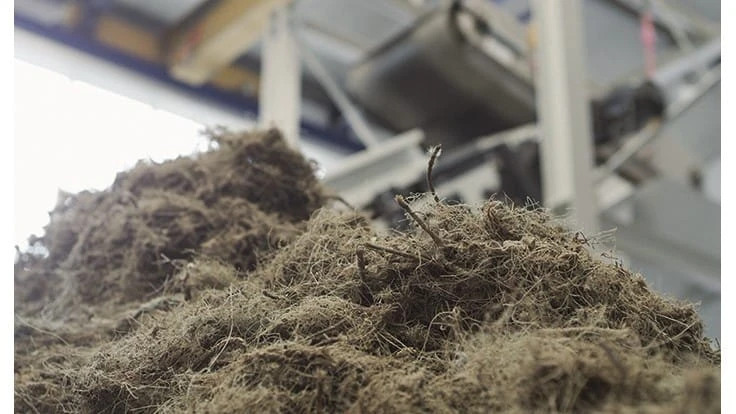
Photo provided by Vecoplan AG.
Bad Marienberg, Germany-based Vecoplan AG, with an American subsidiary based in High Point, North Carolina, says the increasing amount of plastic scrap being generated worldwide can be recycled and returned to production with a high degree of quality. The company says its own machines and plants that shred, convey and process primary and secondary raw materials can “enable a closed cycle economy.”
An essay written for and about Vecoplan by a German public relations firm remarks that the use of plastic has grown steadily in packaging, automotive, aerospace and other industry sectors.
“However, the more the population increases worldwide and prosperity increases in many regions, the more plastic is produced – plastic that often ends up as waste in nature after use, and pollutes the environment to a considerable extent,” the essay also observes.
Vecoplan points to an EU Commission strategy released in January 2018, in which EU Commission First Vice-President Frans Timmermans states, “Unless we change the way we make and use plastics, by 2050 there will be more plastic swimming in our oceans than fish.”
Adds Timmermans, “The only long-term solution is to reduce plastic waste by increasing recycling and re-use. With the EU Strategy for Plastics, we are driving a new, more circulation-oriented business model onwards.” States Vecoplan: Plastics must therefore be designed and manufactured in such a way that they can be recycled.
According to Vecoplan, in Europe as a whole, 41 percent of discarded plastic is incinerated while 31 percent is recycled. “The demand for recycled materials is still too low,” says Martina Schmidt, who heads the Recycling & Waste division at Vecoplan.
Currently, most plastics are still extracted from crude oil. However, according to EU policy and European recycling companies, the future should see the proportion of recycled-content plastic increase noticeably. “The increasing demand for plastics can also lead to a tense supply situation,” says Schmidt. “For example, delivery times for engineering plastics can be up to four months. This also increases prices. It’s an unsatisfactory situation for processing companies.” Recycling plastic scrap is an economical solution for companies, contends Schmidt.
In terms of quality, the purer a recycled-content resin is, the easier it is to use it to produce high-quality products. Schmidt says production scrap in the form of purgings or rejects can therefore be the most economical to recycle. The scrap-generating industry can directly process its scrap into flakes or pellets in a “closed circuit” process.
Processing collected household or commercial plastic scrap can become more expensive, according to Vecoplan, since the collected scrap is more complex. Significant amounts of water and energy can be required to process such materials into a high-quality product, says Schmidt. “In the ideal scenario, however, regranulate [recycled-content resin] possesses the quality of pure material, so it can be replaced one-to-one in the final application,” she comments.
Schmidt cites glass-fiber reinforced plastics as an example where proper shredding can play a critical role. She says Vecoplan works closely with its customers to develop shredding plants that they adapt to such individual applications, after carrying out numerous tests in Vecoplan’s in-house technical center.
“We can exactly adapt our plants to input and output requirements by changing the rotors and cutters and selecting the right screen,” says Schmidt. “The drive technology and a sturdy design are also very important, because they prevent premature wear when shredding abrasive materials like glass fiber-reinforced plastics.”
Vecoplan contends the plastic life cycle can be closed, and that the technology now exists to make “almost pure” recycled-content resins. “Machine manufacturers in Europe have the world’s best technologies and the necessary process engineering know-how to produce high-quality recycled materials,” says Schmidt.
Latest from Waste Today
- $9.8M in waste and recycling grants awarded in Nebraska
- Reworld, Goodwill Keystone honored with e-scrap recycling award
- Circular Services acquires Quantum Organics
- Lincoln Waste Solutions refreshes brand
- Spokane, Washington, explores carbon capture technology at WTE facility
- Rancho Las Virgenes Compost Facility—Calabasas, California
- Optimize wet waste management with Sebright Products High-Density Extruders
- Plum Creek announces new regional sales manager





